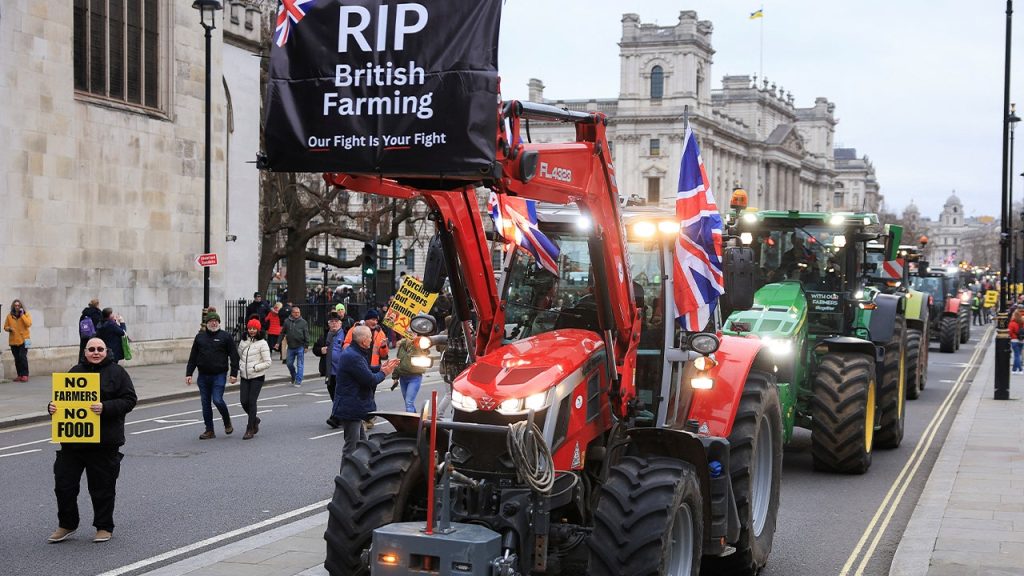The roar of tractor engines reverberated through central London on a Wednesday as hundreds of farmers descended upon the capital, their vehicles forming a formidable blockade against the government’s recent decision to end inheritance tax exemptions for agricultural families. This so-called “tractor tax,” a measure intended to bolster funding for strained public services, ignited a firestorm of protest within the agricultural community, who argue that it will decimate family farms, disrupt the delicate balance of food production, and ultimately jeopardize the nation’s food security. The farmers, their livelihoods hanging in the balance, parked their tractors in close proximity to the Houses of Parliament, a symbolic gesture aimed at pressuring the government to reconsider its course or face the consequences of escalating demonstrations.
The farmers’ grievances stem from a complex interplay of factors that have eroded their financial stability over the years. They point to the relentless pressure exerted by Britain’s fiercely competitive supermarket sector, which often prioritizes low prices over fair compensation for producers. The influx of cheap imports from abroad has further exacerbated their plight, undercutting domestic prices and making it increasingly difficult for British farmers to compete. Adding insult to injury, the post-Brexit landscape has witnessed a reduction in agricultural subsidies, further diminishing their income streams. The inheritance tax, previously waived for intergenerational farm transfers, represented a crucial lifeline for many family-run operations. Now, with the government’s decision to impose the tax from 2026, farmers see their future imperiled, their ability to pass down their legacy to the next generation threatened.
The “tractor tax” has been met with fierce resistance from the agricultural community, sparking widespread protests across the country. The demonstrations highlight the deep-seated anxieties and frustrations of farmers who feel their contributions to the nation’s food supply are undervalued and overlooked. They argue that the tax will disproportionately impact smaller, family-run farms, the backbone of British agriculture, forcing many to sell their land or cease operations altogether. This, they warn, will not only devastate rural communities but also undermine the country’s ability to produce its own food, increasing reliance on imports and potentially jeopardizing food security in the long run.
The government, however, remains steadfast in its position, asserting that the inheritance tax is necessary to address the pressing financial needs of public services. While acknowledging the challenges faced by the farming community, government officials maintain that the tax will only apply to a small percentage of farms, those exceeding a certain value threshold. They emphasize that existing personal allowances, which can be combined by married couples, effectively raise the tax threshold, shielding many family farms from its impact. Furthermore, the government points to various rural support schemes designed to assist farmers and promote rural economic growth.
The escalating tensions between the government and the farming community underscore the delicate balance between fiscal responsibility and the need to protect vital sectors of the economy. The farmers, their livelihoods on the line, are determined to make their voices heard, warning that the “tractor tax” will have far-reaching and devastating consequences for British agriculture. They argue that the government’s focus on short-term revenue gains will ultimately undermine the long-term sustainability of the farming sector, jeopardizing food production and rural livelihoods.
The standoff continues, with farmers vowing to intensify their protests if the government refuses to budge. The “tractor tax” has become a symbol of the broader challenges facing British agriculture, highlighting the complex and often conflicting interests at play. As the debate rages on, the future of British farming hangs in the balance, awaiting a resolution that will determine the fate of generations of farmers and the nation’s ability to feed itself.













